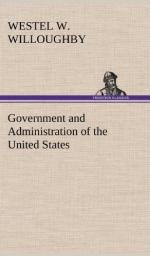The sovereign of England is termed King or Queen. Originally possessed of almost absolute power, the English ruler, at the present day possesses very little actual power and influence, much less in fact than the people of the United States have entrusted to their President. The constitutional history of England is largely the narrative of the successive steps by which the people have wrested from royal hands and taken under their own control, the powers of government.
The rights of the English people in the participation of their own government are not contained in the written document, such as we possess in our constitution, but rest upon established custom and precedent, and various charters wrested from their kings.
The English Parliament, or, to speak more exactly, the lower branch of the Parliament, called the House of Commons, rules the English people. The Parliament or law-making branch of the English government, is divided into two houses, the House of Lords, and the House of Commons. The House of Lords is, as its name denotes, composed mainly of members of the noble families of England, who owe their seat in that body to the chance of birth. Theoretically possessed of powers of legislation equal to those exercised by the lower and more numerous branch (the Commons), the Lords have in reality but a small voice in the control of public affairs. The House of Commons is composed of members elected by the people. In this body reside almost all the powers of government. Its acts require the assent of the House of Lords and of the King, but this assent is almost wholly formal. The sphere of legislation allowed the English Parliament is unlimited, differing in this respect fundamentally from our Congress, which is limited in its legislative field by the Constitution. From the English Parliament is selected the “Cabinet” consisting of the principal executive officials, who guide the House in its legislation, and at the same time conduct the executive affairs of the nation. These ministers, as they are called, are appointed by the king from the party in the majority in the House of Commons. They are responsible to that body for all their actions, and retain their offices only so long as they retain the confidence and good will of the Commons.
_#An Aristocracy.#_—An aristocracy is a government in the hands of a select few, called the aristocracy, who transmit this authority to their children. There are to-day no aristocratic governments proper, though many nations exhibit aristocratic tendencies. In nearly all of the European countries, one branch, at least, of their legislatures is composed of members holding their seats on account of noble birth, thus admitting the aristocratic element into their governments.




